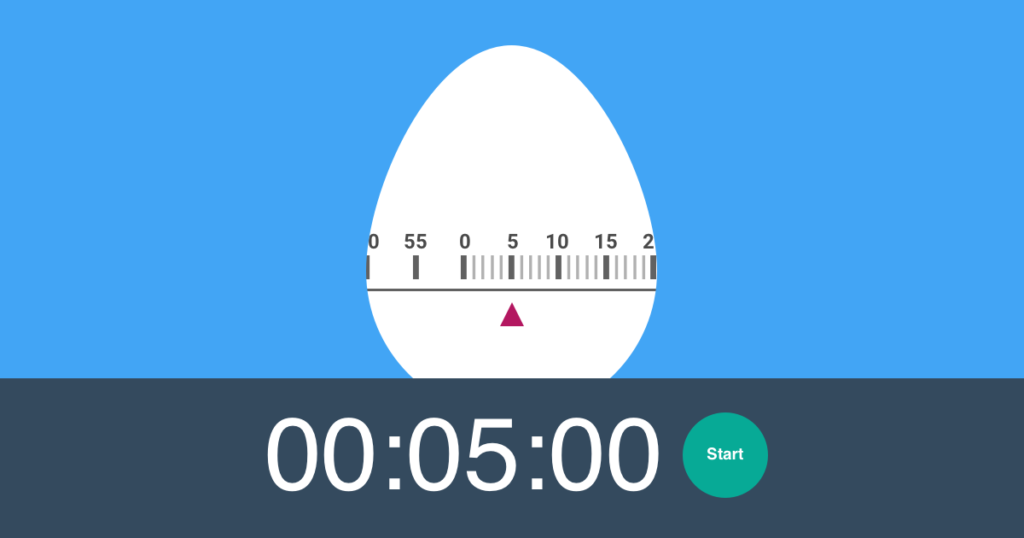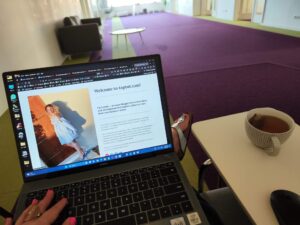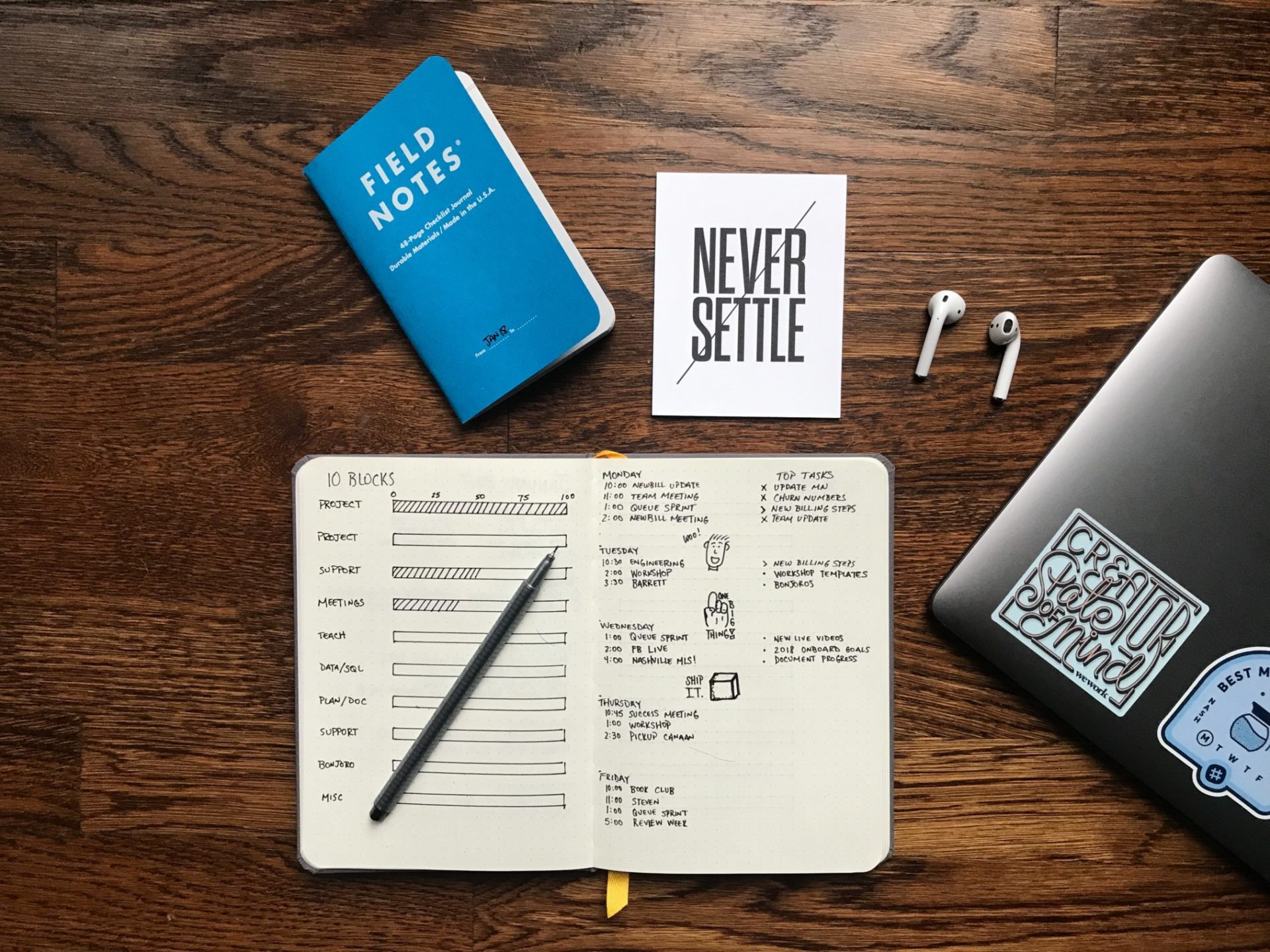Today, with a bit of an off-topic blog post, I wanted to discuss some of my favorite productivity tips, and how I fight procrastination.
When it comes to productivity, I’ve noticed that the same rules do not apply to everyone equally. We all know the basic productivity tips and tricks; how to structure our day, or that you have to write everything down on a piece of paper, and many other essential tips that have been milled over on every personal development blog out there. However, when it comes to real life, things are not so easy. Eliminating distractions and writing your goals on a clean sheet of paper just doesn’t cut it for everyone. We are all different, and we have different lifestyles, we have different routines, different choirs, and responsibilities, different sleeping cycles. Someone wakes up at 5 AM and can be super productive in the morning while someone else is unable to wake up this early at all, and if s/he does, their day will be ruined, let alone productive. So when it comes to productivity, I think the “one size fits all” approach doesn’t work. In this post, I’m going to share my personal experience with productivity (or lack thereof) and what works and does not work for me.
Productivity tip #1: plan your day in the morning
Brian Tracy always insists that you have to write your list of tasks before going to bed and when you go to sleep your brain works on these tasks subconsciously in this way when you wake up in the morning you already have the ‘base” prepared. This never worked for me. If I write my goals the night before, as soon as I wake up in the morning, two things happen. First, I get caught up and change my plans for today, so everything my subconscious worked on an entire night got wasted. Secondly, when I plan my day the night before, I always tend to overestimate myself. When I re-read the plan I wrote yesterday, it looks like I will need a 73-hour day to complete these tasks and I am already late, and the tasks begin to feel heavy on my shoulders, making me even more nervous and stressful.
On the other hand, however, if I plan out my day first thing in the morning, I tend to be a lot more realistic about my time frame and schedule, I have a better idea about what do I want (or don’t want) to do today, and it all comes very naturally. I have a special morning ritual when I wake up; I brew myself a fresh cup of coffee with cream (screw you, diet!), I open my planner and my notebook and plan my day. There is a limited number of tasks you can squeeze into a single day, so bearing that in mind, I schedule my day wisely, so I achieve my goals and at the end of the day, when I go to bed, tell myself that today was a success – because I made progress.
How many tasks is enough to make progress? I am a big believer, that you either make progress, or you fall behind. In today’s fast pacing world, you can’t stay in homeostasis even for a few days. And things add up, always remember it. If every day is a success (you make progress) then in one year from now, you will be elsewhere, far ahead. However, if every day you do nothing (or so little, it doesn’t count) for a whole year… naturally, you will be stuck in the same place, and that is in good case scenario! So how do I make my day a success? I tend to write 3 priority tasks and 3 less important tasks. The goal is to tackle the priority tasks at any cost, and if I have time left, do the remaining 3. This is my realistic goal, though a “task” should be something I can do in 1-2 hours. For example, write a blog post. I can realistically write two every day, and it does contribute toward my blog’s progress enormously. A small house cleaning takes 2 hours, that is also something I can do on top of my 2 blog posts (time-wise), yet I don’t want to clean daily. Same with cooking – it takes me on average 1-2 hours, yet I don’t want to peel opinions in an apron every evening.
Keeping your goals realistic is crucial. Don’t write down three goals, such as “clean up my garage,” “write a book,” “go visit grandma.” When I began working on my productivity, I made the mistake of writing down too many small “tasks” (around 10), and it kept overwhelming me, I was unable to complete them all, and I went to bed every day with a feeling of failure. Then, unfinished tasks from my yesterday’s list moved to my next day, and things have begun to add up in a bad way. To impose radical change, I switched to just 1 task per day. Just one, but it was a priority one, which I had to squeeze in my agenda no matter what. Again, it was a blog post. a 2 hours task that I had to finish even if I had to stop and get back to writing later in the evening. It worked magically because I felt the progress. No more failures. Over time, I felt comfortable adding more tasks, and at the moment, I came to the point that 3 tasks is my lightly challenging yet comfortable limit.
Productivity tip #2: skip breakfast
Next big step towards productivity is to skip breakfast or don’t eat carbohydrates as your first meal. This is, again, something that is totally contra-intuitive and goes against everything you have heard at home or at school. Of course, this may not work for everyone. However, for me personally, if I skip breakfast I’m more focused, energetic, less tired and towards the end of the day I end up bringing less, if at all. I either skip breakfast entirely or try not to have my breakfast loaded with carbohydrates, because if I do – blood sugar rises too high and once it goes down in 2 hours, I feel hungry and sluggish. I then need to snack in order to stay alive, and this vicious cycle not only imprints on my figure but also keeps my busy eating 6-7 times a day. The time that could have otherwise been spent working.
If it’s attainable that day, I’m trying to postpone my first meal far as possible into the day so that my first meal is actually the lunch, and this is when I actually can load myself with food, knowing that I’ve spent at least the first half of the day with my head focused and clear. If you work fast and smart just a few hours (focused and concentrated work) it could be a lot better than having to spend 10 hours at your desk with a foggy mind, doing nothing. I do feel the need to repeat myself – this is not for everyone, but I can honestly say that I came to life the moment I stopped grazing.
I do intermittent fasting, on average with a 4-hour eating window and 18-hours of fasting. It may sound scary not to eat for 18 hours, but if you think about it – it’s very simple. Have your dinner at 6 PM and no snacking until you go to bed. It could be hard if you are not used to sleeping on an empty stomach, but it’s easy to get used to. Then you sleep, so you managed to stretch time for another 6-7 hours. If you wake up at 7 AM, you already have 13 hours of fast behind you, all you need to do is give up the temptation of grabbing a breakfast (read – break fast, “break [the] fast”). If you don’t eat until noon – you won. In the eating window, I don’t restrict myself; I eat sweets or whatever I feel like, it won’t make you fat because your body will live off these calories for the next 18 hours with no additional fuel source.
Productivity tip #3: clear your space from distractions
Blocking out the distractions, easier said than done, I know. However, it’s very hard to concentrate if you have distractions popping out every few minutes. I personally try to silence my phone, because I know that my phone is my biggest enemy: ever since I got a smartphone, my productivity collapsed, same as my finances.
I tend to get interrupted throughout the day, when a phone call or message chimes, or just the urge to compulsively browse through social media, in order to unwind and relieve the tension. If something interrupts me, it takes me (and any other average person) about 10 minutes to get back on track, if you were in the middle of something.
And considering that you have interruptions coming in at you all the time, you may end up spending half your day just “getting back on track.” Setting the phone on silent and allowing only phone calls from family or the most important friends is more than enough. You can easily allow yourself to block out the rest of the world for a few hours and have some disturbance-free time. At first, it will be hard, but I always remind myself that people lived for centuries (and for generations) without any phone at all (let alone mobile) and somehow the human race has survived and made it to this day, so you will survive without your phone 3 hours a day, trust me. The biggest fear we have is that something remarkable will happen and we will not be notified in time. Believe me; nothing will happen. Seriously.
Productivity tip #4: block social media
Another good idea is to block out Fcebook, Twitter, Instagram and LinkedIn, because nothing will ruin your life and career like social media. It sucks up all your time and energy even if we leave out the fact that numerous studies have confirmed how negatively Facebook affects us, causing social media depression (that’s when you compare yourself to others or rather their healthy, glowy pictures). Remember that last time you checked on your ex-boyfriend (or girlfriend) just to find out how successful and happy he is, and got pissed off? Remember that time you spent two hours browsing pictures of a girl you know, wondering how the f*ck she buys all these stuff? That’s social media depression, baby. Welcome to the club!
So not only it will literally take up all your time, it will make you feel discouraged, and you will feel like no matter how hard you work, it will never be good enough. Or, you will never be good enough. This will prevent you from moving forward, so the best way to boost productivity is actually to eliminate the obstacles. Block social media notifications when you work and leave the phone in another room. Otherwise, you would remember that your notifications are silenced, and you’d be inclined to check your phone 20 times more than usual.
Productivity tip #5: break big tasks into small chunks
Set time limits for every task. When I first started with this method, I had a hard time adjusting. It always made me nervous when after 10 minutes the alarm rang, and I didn’t finish my task (yet), so I had to get used to working faster and more effectively. It basically teaches you to work quicker and more efficiently, that is the deal. At first, I couldn’t do this with my work, because I was working with several projects and I could never tell exactly how much time will each task require me to complete. I started practicing it for the daily chores at home, for example, if I wanted to clean my room or my house I would set a timer for 10 minutes for each “area.” 10 minutes to clean up the kitchen counter, 20 minutes to clean the bathroom, etc. The point is to set very short deadlines for small tasks because setting the alarm for 5 hours if you want to clean your entire house will not do the trick. You’ll get perplexed, and the idea is to keep you focused and on point. The purpose is to chop a massive chore (that scares you) into small chunks and allocate a very limited time frame for each. For me, breaking the work into 10-minutes tasks – works best. I can clean my entire house fast and without being overwhelmed if I move from one “zone” to another in small ten-minutes timeframes. If I don’t finish it in 10 minutes, I either give myself 2-3 minutes more or leave it and move on.

Try playing around with the time intervals; some people can only stay focused for 5 minutes, while others can keep their attention sharp for 20-30 minutes. Just like with my previous examples, there is no “one size fits all” method.
This works flawlessly for me, plus the overall feeling of content every time I manage to complete a small part of the task before the alarm rings. However, if you’re not managing to finish in time, don’t get frustrated – we’re not always able to estimate the scope of work that is ahead of us. Whatever you do, don’t install a productivity app or productivity timer though.
Productivity tip #6: avoid productivity apps
I made the mistake when I decided to get effective and productive, and installed maybe 10 productivity apps. One for tracking bad habits, one for keeping track with new good habits, one for monitoring productivity, one for spacing out tasks, one for planning, one for this, one for that… I got so overwhelmed trying to keep up with the productivity apps, that I quickly realized it’s a further waste of my precious time.
Moreover, there is a difference between how your brain processes digital and analog information. What’s on your screen and phone – that is digital. Paper or notebook and handwriting is analog. I wasn’t aware of this fact from such a scientific approach, I just always knew that if I write something on paper and work with my paper calendar, I stay ahead of my agenda. On the other hand, if I use the calendar on my phone, or take notes on my notebook app – I get lost. If you have noticed this pattern in your own productivity struggle, just switch to the good ol’ paper notebook. I have already written many posts on how madly I love and prefer my companion notebooks.
Productivity tip #7: identify your prime time hours
Find the time that is you feel best throughout the day. Prime time is very different for everyone (and doubtlessly every single day can be different), but as I mentioned earlier, some people wake up in the morning and feel their best, while others are completely the opposite – the owl type that rocks at night. Some people, especially those who work online, find it much more comfortable working at night when it’s dark and quiet. You have to listen to yourself and to your body and figure out when you generally get more productive and reserve this time for your most important work. As this blog post is already riddled with personal examples, I will illustrate it with my very own “prime time” time margin. After my aforementioned morning ritual, which lasts about 10-15 minutes, I go with my notepad to sit at my desk, I turn on my laptop, the small and cozy IKEA lamp that I have on my desk, and start working. I can write a blog post of this size in 2 hours (including editing). I can tackle a lot of work. I can conquer the world! Until noon, I perform like a robot – fast, efficient, operating non-stop. As soon as I get hungry and go to have lunch, my performance is decreased by about 50%. I feel a little tired from eating, and distractions begin to get in the way. I basically came to realize that it’s useless even to try and work in the afternoon hours because I achieve a lot less in a much longer time frame. So I only work till noon, and after lunch, it’s just free time for myself.
Remember that being productive isn’t about working hard, or working more. It’s about working faster and smarter.
Productivity tip #8: get mess out of the way
Of course, this blog wouldn’t be as successful as it is if it wasn’t for decluttering. I’m a huge advocate of decluttering, and I feel it’s important to mention it here because clutter correlates with productivity. The more clutter you have lying around you – the less productive you will be. This is an axiom you will be able to confirm for yourself once you purge your house if you are a hoarder. It’s very hard to be productive when working on a messy, busy desk. It’s very hard to find what to wear when you fish out your t-shirts from an untidy wardrobe, where everything seems to fall down on your every time you pull out the wrong sleeve. In fact, the only reason you have nothing to wear every morning is because you have too many clothes to choose from (and very little you actually like).
Too much of anything, clothes, options, stuff, choices, food – tends to overwhelm us. Try gathering similar items in your house and let go of at least some of them. People who are into minimalism will probably tell you to get rid of 80% of your belongings, but well, I find it a little bit radical and unless you are psychopathic hoarder you probably don’t need to let go of everything you have. However, if you have many duplicates, many items that lay around “just in case” or that are broken and need to be thrown away or unwanted gifts that you cannot throw away out of guilty feelings – all these stuff are mere clutter that is getting in the way of your progress.
Not only having less physical items helps your concentration significantly, I always noticed some magical wave of events happening once I throw away all my unneeded stuff. Especially if I do it in one go, purging many bags of old clothes and useless stuff, my life changes magically. I get a new wave of opportunities coming my way, doors open up to me, and a fresh wave of energy enters my life as if that physical energy that was lying around your house in the form of useless broken things – was a dirty plug in the energy field.
This was a long post, but I hope these productivity tips were useful and you will find applying some of these tips helpful and they change your life for the better.
To sum it up, if you commit to just 5 things I mentioned, you will notice an enormous improvement in your productivity.
- Plan your day ahead first thing in the morning.
- Skip breakfast, push your first meal as far as possible into the afternoon hours.
- Block social media
- Silence your phone and incoming email notifications
- Forget about productivity apps!
- Break big tasks into small, 10-minutes chunks
- Recognize your “prime time hours”, the hours you are naturally more energize and productive at.
- De-clutter your house from all the old, unneeded, unwanted, unused things.
Please let me know in the comment below what do you think.
Data analytics expert. As an analyst and project manager, I have proven to be a strong leader and team player in maintaining a suitable workspace for workers and industries in the oil and gas sector.
By taking into account various factors, with the assistance of state of the art technologies and the utilization of Big Data Analytics.
This includes considering various aspects like volume, velocity, variety, veracity, value together with complexity.
With the recent advent of data recording sensors in exploration, drilling, and production operations, oil and gas industry has become a massive data intensive industry.






